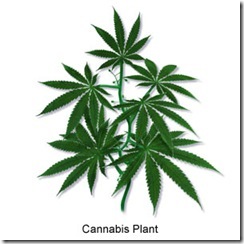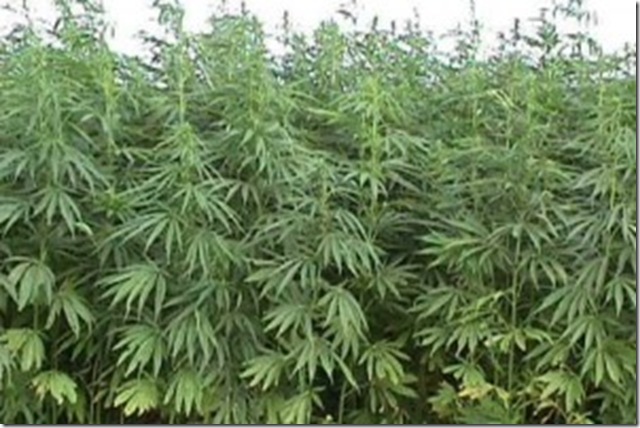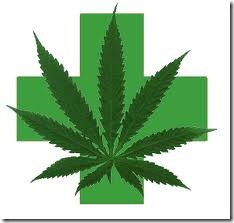AND HOW THE UNITED NATIONS CONTROLS ALL NARCOTICS INCLUDING (BUT NOT LIMITED TO) CANNABIS AND HEMP.
COULD THIS BE THE REAL REASON WHY THE UNITED STATES HAS NOT ADOPTED NEW LAWS AND LEGAL OPINIONS ON MARIJUANA?
IS IT THE UNITED NATIONS WE SHOULD BE PROTESTING OR OUR OWN GOVERNMENTS? DOES OUR OWN GOVERNMENT EVEN HAVE ANY CONTROL OVER THE MATTER?
THE N W O OVER RIDES OUR OWN COUNTRY’S LAWS, AND RULE OF THE PEOPLE BY THE PEOPLE FOR THE PEOPLE…

HERE IS A LINK TO THE ENTIRE PDF….
SINGLE CONVENTION ON NARCOTIC DRUGS, 1961,
AS AMENDED BY THE 1972 PROTOCOL AMENDING THE
SINGLE CONVENTION ON NARCOTIC DRUGS, 1961
PREAMBLE
The Parties,
Concerned with the health and welfare of mankind,
Recognizing that the medical use of narcotic drugs continues to be indispensable for the relief of pain and suffering and that adequate provision must be made to ensure the availability of narcotic drugs for such purposes,
Recognizing that addiction to narcotic drugs constitutes a serious evil for the individual and is fraught with social and economic danger to mankind,
Conscious of their duty to prevent and combat this evil,
Considering that effective measures against abuse of narcotic drugs require co-ordinated and universal action,
Understanding that such universal action calls for international co-operation guided by the same principles and aimed at common objectives,
Acknowledging the competence of the United Nations in the field of narcotics control and desirous that the international organs concerned should be within the framework of that Organization,
Desiring to conclude a generally acceptable international convention replacing existing treaties on narcotic drugs, limiting such drugs to medical and scientific use, and providing for continuous international co-operation and control for the achievement of such aims and objectives,
Hereby agree as follows:
Article 1
DEFINITIONS
1. Except where otherwise expressly indicated or where the context otherwise requires, the following definitions shall apply throughout the Convention:
a) “Board” means the International Narcotics Control Board,
b) “Cannabis” means the flowering or fruiting tops of the cannabis plant (excluding the seeds and leaves when not accompanied by the tops) from which the resin has not been extracted, by whatever name they may be designated.
c) “Cannabis plant” means any plant of the genus Cannabis,
d) “Cannabis resin” means the separated resin, whether crude or purified, obtained from the cannabis plant.
e) “Coca bush” means the plant of any species of the genus Erythroxylon.
f) “Coca leaf” means the leaf of the coca bush except a leaf from which all ecgonine, cocaine and any other ecgonine alkaloids have been removed.
g) “Commission” means the Commission on Narcotic Drugs of the Council.
h) “Council” means the Economic and Social Council of the United Nations.
i) “Cultivation” means the cultivation of the opium poppy, coca bush or cannabis plant.
j) “Drug” means any of the substances in Schedules I and II, whether natural or synthetic.
k) “General Assembly” means the General Assembly of the United Nations.
1 Note by the Secretariat: The Preamble to the Protocol amending the Single Convention on Narcotic Drugs, 1961, reads as follows:
“The Parties to the Present Protocol,
“Considering the provisions of the Single Convention on Narcotic Drugs, 1961, done at New York on 30 March 1961 (hereinafter called the Single Convention),
“Desiring to amend the Single Convention
“Have agreed as follows:”
– 1 –
l) “Illicit traffic” means cultivation or trafficking in drugs contrary to the provisions of this Convention.
m) “Import” and “export” mean in their respective connotations the physical transfer of drugs from one State to another State, or from one territory to another territory of the same State.
n) “Manufacture” means all processes, other than production, by which drugs may be obtained and includes refining as well as the transformation of drugs into other drugs.
o) “Medicinal opium” means opium which has undergone the processes necessary to adapt it for medicinal use.
p) “Opium” means the coagulated juice of the opium poppy.
q) “Opium poppy” means the plant of the species Papaver somniferum L.
r) “Poppy straw” means all parts (except the seeds) of the opium poppy, after mowing.
s) “Preparation” means a mixture, solid or liquid, containing a drug.
t) “Production” means the separation of opium, coca leaves, cannabis and cannabis resin from the plants from which they are obtained.
u) “Schedule I”, “Schedule II”, “Schedule III” and “Schedule IV” mean the correspondingly numbered list of drugs or preparations annexed to this Convention, as amended from time to time in accordance with article 3.
v) “Secretary-General” means the Secretary-General of the United Nations.
w) “Special stocks” means the amounts of drugs held in a country or territory by the Government of such country or territory for special government purposes and to meet exceptional circumstances; and the expression “special purposes” shall be construed accordingly.
x) “Stocks” means the amounts of drugs held in a country or territory and intended for:
i) Consumption in the country or territory for medical and scientific purposes,
ii) Utilization in the country or territory for the manufacture of drugs and other substances, or
iii) Export;
but does not include the amounts of drugs held in the country or territory,
iv) By retail pharmacists or other authorized retail distributors and by institutions or qualified persons in the duly authorized exercise of therapeutic or scientific functions, or
v) As “special stocks”.
y) Territory” means any part of a State which is treated as a separate entity for the application of the system of import certificates and export authorizations provided for in article 31. This definition shall not apply to the term “territory” as used in articles 42 and 46.
2. For the purposes of this Convention a drug shall be regarded as “consumed” when it has been supplied to any person or enterprise for retail distribution, medical use or scientific research; and “consumption” shall be construed accordingly.
Article 2
SUBSTANCES UNDER CONTROL
1. Except as to measures of control which are limited to specified drugs, the drugs in Schedule I are subject to all measures of control applicable to drugs under this Convention and in particular to those prescribed in article 4 c), 19, 20, 21, 29, 30, 31, 32, 33, 34 and 37.
2. The drugs in Schedule II are subject to the same measures of control as drugs in Schedule I with the exception of the measures prescribed in article 30, paragraphs 2 and 5, in respect of the retail trade.
3. Preparations other than those in Schedule III are subject to the same measures of control as the drugs which they contain, but estimates (article 19) and statistics (article 20) distinct from those dealing with these drugs shall not be required in the case of such preparations, and article 29, paragraph 2 c) and article 30, paragraph 1 b) ii) need not apply.
4. Preparations in Schedule III are subject to the same measures of control as preparations containing drugs in Schedule II except that article 31, paragraphs 1 b) and 3 to 15 and, as regards their acquisition and retail distribution, article 34, paragraph b), need not apply, and that for the purpose of estimates (article 19) and statistics (article 20) the information required shall be restricted to the quantities of drugs used in the manufacture of such preparations.
– 2 –
5. The drugs in Schedule IV shall also be included in Schedule I and subject to all measures of control applicable to drugs in the latter Schedule, and in addition thereto:
a) A Party shall adopt any special measures of control which in its opinion are necessary having regard to the particularly dangerous properties of a drug so included; and
b) A Party shall, if in its opinion the prevailing conditions in its country render it the most appropriate means of protecting the public health and welfare, prohibit the production, manufacture, export and import of, trade in, possession or use of any such drug except for amounts which may be necessary for medical and scientific research only, including clinical trials therewith to be conducted under or subject to the direct supervision and control of the Party.
6. In addition to the measures of control applicable to all drugs in Schedule I, opium is subject to the provisions of article 19, paragraph 1, subparagraph f), and of articles 21 bis, 23 and 24, the coca leaf to those of articles 26 and 27 and cannabis to those of article 28.
7. The opium poppy, the coca bush, the cannabis plant, poppy straw and cannabis leaves are subject to the control measures prescribed in article 19, paragraph 1, subparagraph e), article 20, paragraph 1, subparagraph g), article 21 bis and in articles 22 to 24; 22, 26 and 27; 22 and 28; 25; and 28, respectively:
8. The Parties shall use their best endeavours to apply to substances which do not fall under this Convention, but which may be used in the illicit manufacture of drugs, such measures of supervision as may be practicable.
9. Parties are not required to apply the provisions of this Convention to drugs which are commonly used in industry for other than medical or scientific purposes, provided that:
a) They ensure by appropriate methods of denaturing or by other means that the drugs so used are not liable to be abused or have ill effects (article 3, paragraph 3) and that the harmful substances cannot in practice be recovered; and
b) They include in the statistical information (article 20) furnished by them the amount of each drug so used.
Article 3
CHANGES IN THE SCOPE OF CONTROL
1. Where a Party or the World Health Organization has information which in its opinion may require an amendment to any of the Schedules, it shall notify the Secretary-General and furnish him with the information in support of the notification.
2. The Secretary-General shall transmit such notification, and any information which he considers relevant, to the Parties, to the Commission, and, where the notification is made by a Party, to the World Health Organization.
3. Where a notification relates to a substance not already in Schedule I or in Schedule II,
i) The Parties shall examine in the light of the available information the possibility of the provisional application to the substance of all measures of control applicable to drugs in Schedule I;
ii) Pending its decision as provided in subparagraph iii) of this paragraph, the Commission may decide that the Parties apply provisionally to that substance all measures of control applicable to drugs in Schedule I. The Parties shall apply such measures provisionally to the substance in question;
iii) If the World Health Organization finds that the substance is liable to similar abuse and productive of similar ill effects as the drugs in Schedule I or Schedule II or is convertible into a drug, it shall communicate that finding to the Commission which may, in accordance with the recommendation of the World Health Organization, decide that the substance shall be added to Schedule I or Schedule II.
– 3 –
4. If the World Health Organization finds that a preparation because of the substances which it contains is not liable to abuse and cannot produce ill effects (paragraph 3) and that the drug therein is not readily recoverable, the Commission may, in accordance with the recommendation of the World Health Organization, add that preparation to Schedule III.
5. If the World Health Organization finds that a drug in Schedule I is particularly liable to abuse and to produce ill effects (paragraph 3) and that such liability is not offset by substantial therapeutic advantages not possessed by substances other than drugs in Schedule IV, the Commission may, in accordance with the recommendation of the World Health Organization, place that drug in Schedule IV.
6. Where a notification relates to a drug already in Schedule I or Schedule II or to a preparation in Schedule III, the Commission, apart from the measure provided for in paragraph 5, may, in accordance with the recommendation of the World Health Organization, amend any of the Schedules by:
a) Transferring a drug from Schedule I to Schedule II or from Schedule II to Schedule I; or
b) Deleting a drug or a preparation as the case may be, from a Schedule.
7. Any decision of the Commission taken pursuant to this article shall be communicated by the Secretary-General to all States Members of the United Nations, to non-member States Parties to this Convention, to the World Health Organization and to the Board. Such decision shall become effective with respect to each Party on the date of its receipt of such communication, and the Parties shall thereupon take such action as may be required under this Convention.
8. a) The decisions of the Commission amending any of the Schedules shall be subject to review by the Council upon the request of any Party filed within ninety days from receipt of notification of the decision. The request for review shall be sent to the Secretary-General together with all relevant information upon which the request for review is based;
b) The Secretary-General shall transmit copies of the request for review and relevant information to the Commission, the World Health Organization and to all the Parties inviting them to submit comments within ninety days. All comments received shall be submitted to the Council for consideration;
c) The Council may confirm, alter or reverse the decision of the Commission, and the decision of the Council shall be final. Notification of the Council’s decision shall be transmitted to all States Members of the United Nations, to non-member States Parties to this Convention, to the Commission, to the World Health Organization, and to the Board;
d) During pendency of the review the original decision of the Commission shall remain in effect.
9. Decisions of the Commission taken in accordance with this article shall not be subject to the review procedure provided for in article 7.
Article 4
GENERAL OBLIGATIONS
The parties shall take such legislative and administrative measures as may be necessary:
a) To give effect to and carry out the provisions of this Convention within their own territories;
b) To co-operate with other States in the execution of the provisions of this Convention; and
c) Subject to the provisions of this Convention, to limit exclusively to medical and scientific purposes the production, manufacture, export, import, distribution of, trade in, use and possession of drugs.










